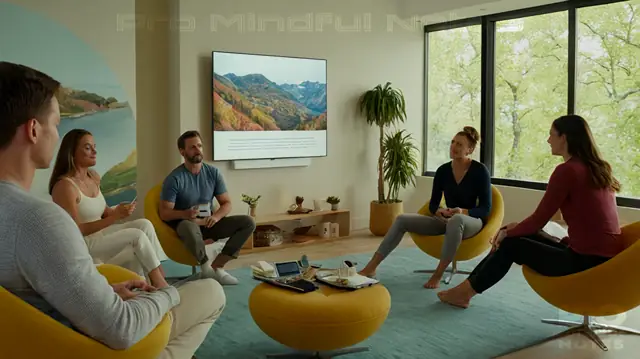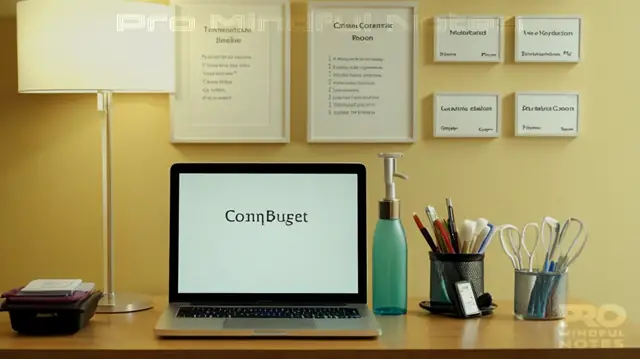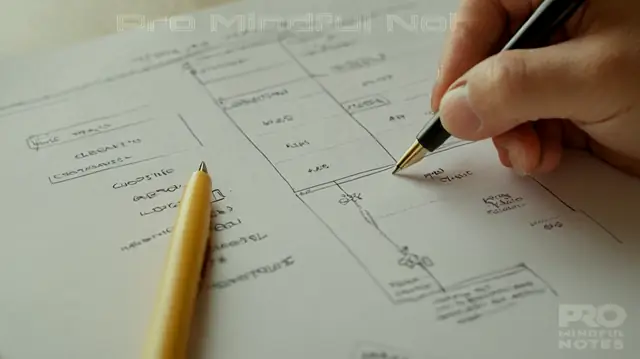Unlock mental wellness insights using 15 customizable template guides

In this article, we will be discussing a collection of 15 customizable template guides that can be used to unlock mental wellness insights. These templates are specifically designed for mental health professionals and can be used to write progress notes, therapy session notes, and treatment notes. By using these templates, you'll have a simple and effective way to document client sessions and track their progress over time.
The templates provided in this article range from basic templates like SOAP notes to more specific ones focused on particular mental health conditions, such as ADHD or trauma-related issues. Each template includes a brief example of how it might be used in practice, making it easier for clinicians to understand how to apply these templates to their own work.
By using these customizable template guides, you'll be able to streamline your note-taking process, improve the accuracy and clarity of your documentation, and enhance your ability to track client progress and outcomes. With 15 different templates to choose from, you're sure to find one that fits your unique needs and style of practice.
- The importance of progress notes in mental health practice
- Benefits of using template guides for mental wellness insights
- Template Guide 1: SOAP Note Template
- Template Guide 2: DAP Progress Notes Template
- Template Guide 3: BIRP and GIRP Progress Notes Templates
- Template Guide 4: Mindfulness-Based Therapy Session Notes Template
- Template Guide 5: Cognitive-Behavioral Therapy Session Notes Template
- Template Guide 6: Psychodynamic Therapy Session Notes Template
- Template Guide 7: Trauma-Informed Therapy Session Notes Template
- Template Guide 8: Solution-Focused Therapy Session Notes Template
- Template Guide 9: Family Therapy Session Notes Template
- Conclusion
- Video about Unlock mental wellness insights using 15 customizable template guides
The importance of progress notes in mental health practice
In mental health practice, progress notes are an essential tool for clinicians to document patient sessions and track client progress over time. These notes serve as a vital record of a client's treatment journey, allowing therapists to reflect on their work, identify areas of improvement, and make informed decisions about future treatment planning. Well-documented progress notes also meet insurance requirements and provide a clear understanding of the therapeutic process.
A sample therapy progress note might look like this: "Today's session focused on exploring the client's feelings of anxiety related to an upcoming exam. We used cognitive-behavioral techniques to help them identify and challenge negative thought patterns, which led to increased confidence and reduced distress." This example demonstrates how a therapist can summarize a treatment session in a concise and informative manner.
By using progress note templates, such as SOAP (Subjective, Objective, Assessment, Plan), DAP (Data, Analysis, Plan), BIRP (Background, Issues, Reactions, Plan), or GIRP (Goals, Interventions, Responses, Plan), clinicians can ensure that their progress notes are comprehensive and easy to understand. These templates also facilitate the development of a consistent note-taking style, making it easier for therapists to maintain accurate and thorough records of client progress over time.
Benefits of using template guides for mental wellness insights

The use of template guides is an effective way to document patient sessions and track client progress in mental wellness initiatives. One of the most significant benefits is the ability to streamline note-taking, allowing clinicians to focus on the therapeutic process rather than struggling to create detailed notes during or after each session. Progress note templates provide a framework for organizing thoughts and observations, making it easier to capture important details and ensure that all necessary information is included.
Another advantage of using template guides is the consistency they bring to documentation practices. By using standardized templates, clinicians can reduce errors and inconsistencies in their notes, ensuring that client information is accurately recorded and easily accessible for future reference. Counseling sample therapy progress notes provide a valuable resource for mental health professionals, helping them to maintain high-quality records that meet industry standards.
In addition to these practical benefits, using template guides can also help clinicians to better capture the complexity of client's experiences and needs. By incorporating sample psychotherapy progress note templates into their practice, mental health professionals can ensure that they are considering all relevant factors when assessing client progress, from treatment goals and outcomes to coping mechanisms and strengths. This holistic approach can lead to more effective treatment plans and improved outcomes for clients.
Template Guide 1: SOAP Note Template

The first template guide is the Standardized Patient Assessment Instrument (SOAP) Note Template, a fundamental tool used in various forms of therapy, including mental health and counseling. This template helps clinicians structure their notes by dividing them into four sections: Subjective, Objective, Assessment, and Plan.
In the Subjective section, therapists record client's self-reported experiences, emotions, and thoughts related to their symptoms or concerns. The Objective section captures observable behaviors, physical findings, and laboratory results relevant to the client's condition. Next, clinicians use the Assessment section to summarize their understanding of the client's situation, including diagnoses or treatment plans. Finally, the Plan section outlines the therapist's strategies for addressing the client's needs and achieving desired outcomes.
This SOAP note template is an excellent starting point for creating comprehensive progress notes that facilitate effective psychotherapy and mental health treatment planning. With this template, therapists can efficiently document client's progress and adjust their approaches as needed to achieve successful outcomes.
Template Guide 2: DAP Progress Notes Template

In therapy progress note templates, a comprehensive and well-structured approach is essential to accurately capture client progress. The DAP (Description, Assessment, Plan) template is an excellent example of this. This template provides a clear framework for mental health professionals to document client sessions, incorporating key elements such as the description of the session, assessment of client progress, and plan for future therapy.
By using the counseling sample therapy progress notes provided in this DAP template, therapists can easily organize their thoughts and provide a detailed account of each session. This not only helps track client progress over time but also enables mental health professionals to identify patterns, trends, and areas for improvement in their practice. With the DAP template, you'll have a free therapy notes template that guides your documentation process, ensuring that every important detail is captured.
To get started with this template, begin by describing the therapy session notes examples that took place during each visit. This includes details about the client's presentation, goals, and any notable events or themes that emerged during the session. Next, assess the client's progress using a standard scale or framework, highlighting areas of improvement and those that require further attention. Finally, outline the therapist progress note template for future sessions, incorporating any necessary tasks, homework, or referrals. By following this template, you'll be able to create psychotherapy notes sample that provide a comprehensive record of client progress and treatment outcomes.
Template Guide 3: BIRP and GIRP Progress Notes Templates
The next two templates in our collection are designed to help mental health professionals document client progress more effectively. BIRP (Behavioral, Interpersonal, Role-Play, and Positive) Progress Notes is a comprehensive template that guides clinicians in recording client progress across four key areas: behavioral changes, interpersonal interactions, role-playing exercises, and positive developments. This template can be particularly useful for tracking client growth and improvement over time.
In contrast, GIRP (Goal-Setting, Interpersonal, Role-Playing, and Progress) Progress Notes focuses more on the specific goals that clients are working towards and their progress in achieving those objectives. This template is ideal for therapists who want to track client success and adjust treatment plans accordingly. Both BIRP and GIRP templates can be used as a starting point for writing psychotherapy progress notes, which are essential for maintaining accurate records of client sessions.
Example: Consider using the BIRP template to document a client's progress in managing anxiety symptoms. Under the behavioral changes section, you might note that the client has been practicing relaxation techniques more consistently. In the interpersonal interactions section, you could record that the client reported feeling more comfortable expressing their emotions to friends and family members. For role-playing exercises, you might describe how the client worked through a simulated social situation with ease. And under positive developments, you could highlight the client's increased confidence in their ability to manage anxiety attacks.
Template Guide 4: Mindfulness-Based Therapy Session Notes Template

The Mindfulness-Based Therapy Session Notes Template is designed to help therapists and counselors effectively document their sessions with clients. This template provides a structured format for recording client progress, goals, and treatment plans, making it an invaluable tool for mental health professionals.
This template is particularly useful for mindfulness-based therapies, which emphasize self-awareness, self-regulation, and self-acceptance. By using this template, therapists can track client progress in areas such as increased awareness of thoughts and emotions, improved coping skills, and enhanced overall well-being.
The template includes sections for noting the client's presentation, goals, and treatment plan, as well as space to record progress notes throughout the session. This allows therapists to keep a detailed record of the client's progress, which can be invaluable for tracking changes over time and informing future therapy sessions.
Template Guide 5: Cognitive-Behavioral Therapy Session Notes Template

The Cognitive-Behavioral Therapy (CBT) Session Notes Template is a comprehensive tool designed to help mental health professionals document patient sessions in a clear and concise manner. This template guides therapists in recording the details of each therapy session, including client concerns, goals, and progress made during the session. By using this template, clinicians can effectively track client progress and make informed decisions about future treatment plans.
Within this template, you will find sections such as Therapist Notes, Client Concerns, Goals, Progress Made, and Next Steps. This structure allows therapists to easily organize their thoughts and capture the essential information needed for accurate documentation. As an added bonus, this template can be adapted to suit individual practice styles and therapy approaches, making it a valuable resource for any mental health professional.
When using this CBT session notes template, therapists will have access to a free sample of progress notes that can be customized to meet their specific needs. With the ability to printable, this template is perfect for those who prefer a physical copy or need to share with colleagues and supervisors.
Template Guide 6: Psychodynamic Therapy Session Notes Template
Effective therapy progress note documentation is crucial in psychodynamic therapy, allowing therapists to track client progress and provide a comprehensive record of treatment. The Psychodynamic Therapy Session Notes Template is designed to facilitate this process, providing a framework for recording session details, client responses, and therapeutic interventions. This template guide offers a sample of progress notes that can be adapted to fit individual clinical practices.
The Psychodynamic Therapy Session Notes Template features sections dedicated to recording the session's objective, themes explored, and client insights gained during the therapy session. Additionally, it includes spaces for noting therapist impressions, treatment plan updates, and any relevant observations or reflections. By using this template, therapists can ensure that their progress notes are comprehensive, well-organized, and easily accessible for future reference.
Whether you're a seasoned mental health professional or just starting out in psychodynamic therapy, the Psychodynamic Therapy Session Notes Template is an invaluable tool for counseling sample therapy progress notes. By utilizing this template, you can streamline your documentation process, improve treatment outcomes, and enhance overall client care.
Template Guide 7: Trauma-Informed Therapy Session Notes Template
Effective documentation of trauma-informed therapy sessions is crucial for mental health professionals to track client progress and provide quality care. This trauma-informed therapy session notes template provides a clear and concise framework for therapists to record their sessions. With this template, you'll be able to document important details such as the client's goals, emotions, and behaviors, as well as your own observations and insights.
The template includes sections for noting the client's progress note mental health, including any notable changes or milestones achieved during the session. You can also use this space to reflect on the therapeutic relationship and identify areas for further exploration. Additionally, the template allows you to document any therapy progress note example of specific techniques or interventions used during the session, such as cognitive-behavioral therapy (CBT) or trauma-focused cognitive behavioral therapy (TF-CBT).
This sample of progress notes can serve as a valuable tool for mental health professionals to maintain accurate and comprehensive records of client sessions. By using this template, you'll be able to demonstrate your commitment to providing high-quality care while also facilitating meaningful patient outcomes.
Template Guide 8: Solution-Focused Therapy Session Notes Template
The Solution-Focused Therapy Session Notes Template is designed to help therapists document client progress in a way that emphasizes solutions and positive outcomes. This template provides a structured approach for recording therapy sessions, focusing on the client's strengths and goals. By using this template, therapists can ensure that their progress notes are comprehensive, concise, and informative.
When using this template, therapists should begin by summarizing the main issues discussed during the session, followed by a description of the solutions or coping strategies developed. The template also includes space for noting any relevant feelings, thoughts, or behaviors observed during the session. This information can be used to track client progress over time and inform future therapy sessions.
To get started with this template, therapists simply need to download and customize it to fit their specific needs and practice style. With its focus on solutions and positive outcomes, this template is an excellent choice for therapists who want to document their work in a way that emphasizes hope and empowerment.
Template Guide 9: Family Therapy Session Notes Template

Effective documentation is crucial in family therapy sessions, allowing therapists to track client progress and provide insightful notes for future reference. The Family Therapy Session Notes Template (Template Guide 9) provides a comprehensive framework for capturing key information during these sessions.
This template guides therapists through the essential components of a family therapy session, including the presenting issues, goals and objectives, strategies employed, and outcome assessments. By using this template, mental health professionals can ensure that their progress notes are well-organized, easy to understand, and compliant with insurance requirements. Whether you're a seasoned therapist or just starting out, Template Guide 9 is an invaluable resource for capturing the complexities of family therapy sessions in a clear and concise manner.
Within this template, therapists will find space to document key details such as client demographics, presenting issues, and treatment plans, as well as areas for recording session notes, goals achieved, and any notable interactions or observations. By incorporating Template Guide 9 into their documentation routine, mental health professionals can streamline their note-taking process, enhance the accuracy of their progress notes, and ultimately provide better care to their clients.
Conclusion
We hope that this comprehensive collection of 15 customizable templates has provided you with the tools and inspiration you need to write effective progress notes in your mental wellness practice. From SOAP notes to BIRP and GIRP, each template is designed to help you document patient sessions in a clear and concise manner, while also facilitating meaningful client care.
Whether you're a therapist, counselor, or psychiatric professional, these templates are sure to become invaluable assets in your daily work. With the flexibility to tailor them to suit your unique practice and style, you'll be able to track client progress over time with ease, making it simpler to identify areas where they may need additional support.
So why wait? Start unlocking the insights you've been missing by using these free mental wellness template guides today!
Video about Unlock mental wellness insights using 15 customizable template guides
Leave a Reply


Related Posts